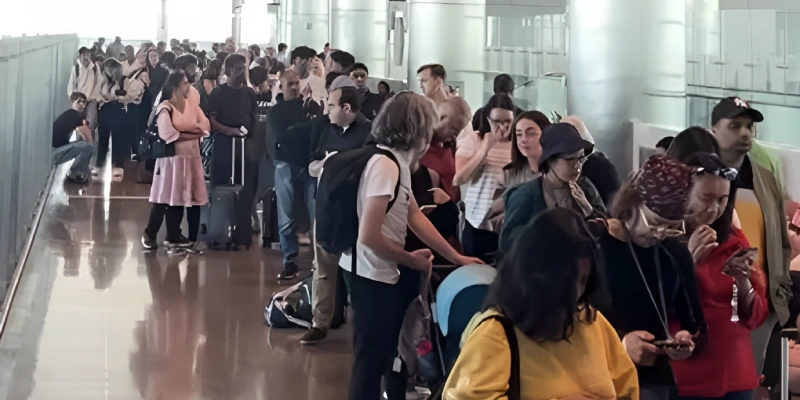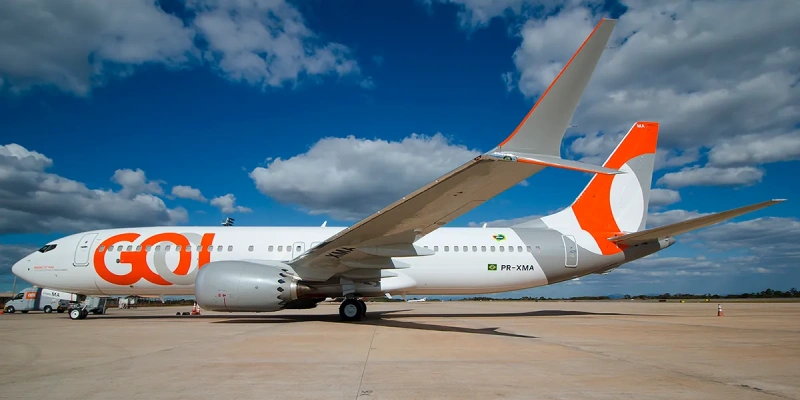Doha and Dubai, two of the world’s busiest airports, were plunged into chaos this Tuesday, with thousands of passengers trapped and endless lines overwhelming their terminals. The situation began after Qatar, Bahrain, and Kuwait temporarily closed their airspace on Monday following an Iranian attack on a U.S. military base in Doha. This measure forced the cancellation or diversion of hundreds of flights, triggering a logistical crisis that continues to reverberate across the region.
Canceled Flights and Delays
By the numbers:
- 250 flights canceled and 238 delayed at Hamad International Airport (Doha).
- 145 flights canceled and over 450 delayed at Dubai International Airport, the world’s busiest, according to FlightRadar24 data.
In total, more than 25,000 passengers were stranded in Doha alone, as estimated by Virgin Australia.
“I haven’t slept in 19 hours. I’ve been in this line for over nine,” said Lily Rogers, a 21-year-old psychology student, to Reuters.
A Key Region in Global Air Traffic
Middle Eastern airports are a critical hub for air traffic between Europe and Asia. Since the start of the war in Ukraine, their importance has grown even further, as they serve as alternative routes due to the inability to fly over Russian and Ukrainian airspace.
→ Emirates Strengthens Its Presence in Barcelona with a Third Daily Flight
Last year, Dubai handled 92.3 million passengers, with a daily average exceeding 250,000 travelers. However, recent restrictions have created ripple effects beyond the Gulf.
Only 22% of passengers in Doha have Qatar as their final destination, amplifying the global impact of the disruption, noted independent analyst Brendan Sobie.
Impact on Airlines and International Routes
Qatar Airways assured it is working to restore its schedule, though it warned that the effects could linger until June 26.
Air India suspended flights to the U.S., Canada, and Europe due to the closure of key air corridors.
Additional restrictions complicate matters further: Indian airlines cannot use Pakistani airspace, blocked since April after a brief military conflict. This further disrupts itineraries between Asia and the West.
Flydubai anticipates delays will persist as long as air congestion continues.
Tensions Persist Despite Ceasefire Announcement
U.S. President Donald Trump announced that Iran and Israel had agreed to a ceasefire, but attacks continue. The hostilities had already led airlines like British Airways and Lufthansa to suspend flights to the Middle East days earlier.
Julien Moutte, a passenger bound for Paris, summed it up after being stranded in Doha for 15 hours: “It’s very frustrating.”
This scenario underscores the fragility of the global air system in the face of geopolitical events. The consequences are felt not only in the Middle East but also in the routes connecting entire continents.
Related Topics
LATAM Resumes Flights Between Bogota and Caracas Starting February 23
LATAM Consolidates Rosario–São Paulo Route: Daily Service Starting in September
GOL Resumes São Paulo-Caracas Route Starting in March
LATAM Commits to AeroSHARK: “Sharkskin” Technology to Expand Across Entire Boeing 777 Fleet

Plataforma Informativa de Aviación Comercial con 13 años de trayectoria.




